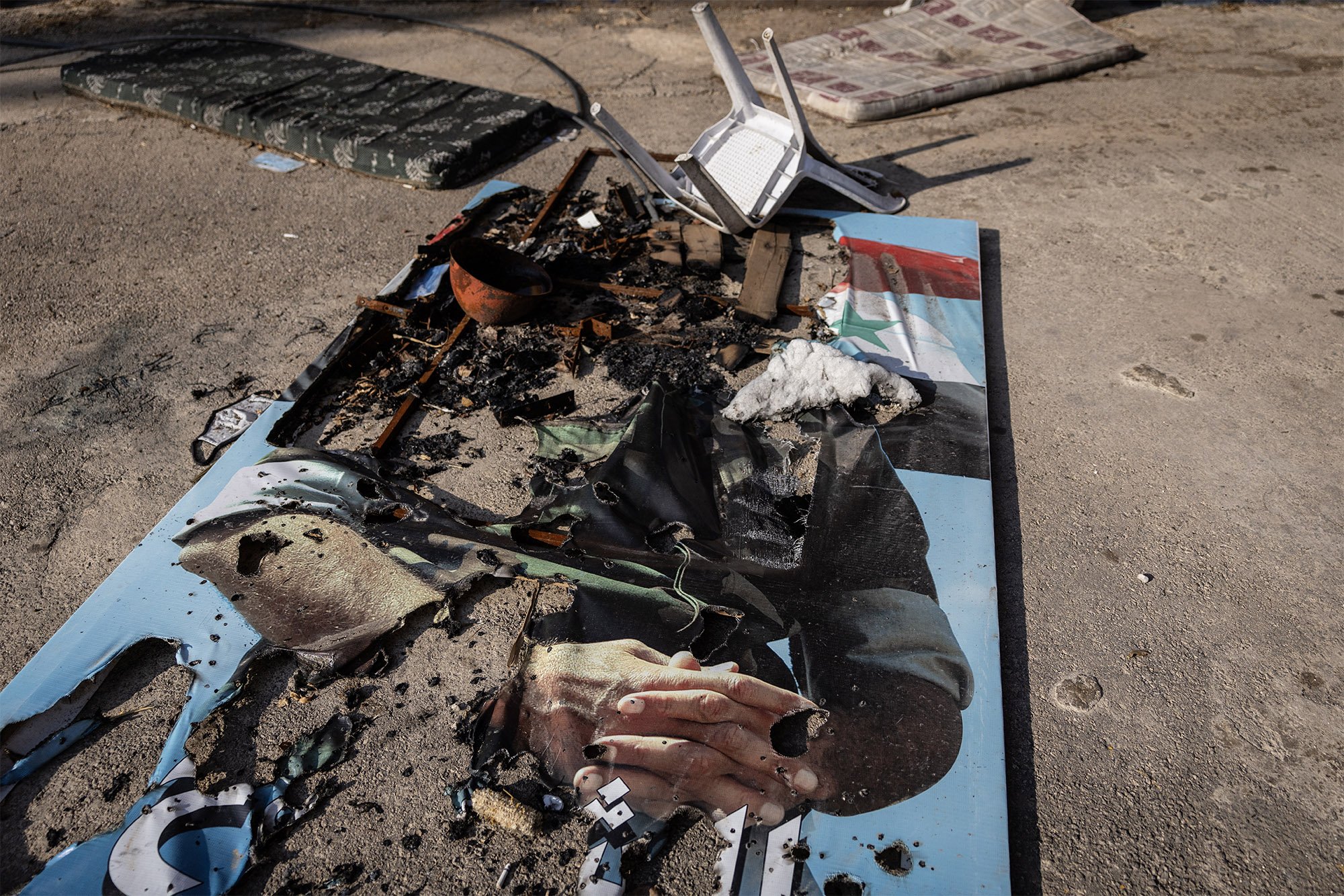When Bashar al-Assad was toppled in December, the iconography of posters, billboards and statues emblematic of his family’s brutal decades-long grip on the country also came down.
The images of Assad family members — on government buildings and taxi windows, in shops and at ancient sites — were a way to cement the Assad cult of personality and assert control. The dictatorship survived for so long partly by making Syrians fearful and distrusting of one another.
“They practically made themselves gods,” said Ibrahim Qashash, 42, who is from Aleppo.





























